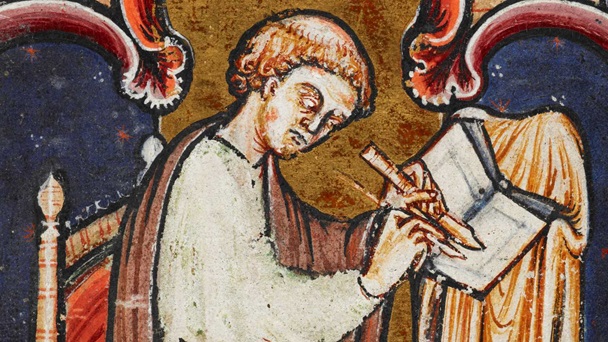Since the early beginnings of Christianity, it seems that religion itself had an urge to be spread. Indeed, the bishops and archbishops were not only spiritual figures, but also political ones, and this demonstrates how influential Christianity was in the Anglo-Saxon life. This essay is going to talk about the perspective that we have on the Anglo-Saxons nowadays, as well as how Christianity and commerce are connected and how religion is sold through salvation.
To begin with, it seems that Christianity was very important in the Anglo-Saxon life. Due to Christianity, there are texts that give us a glimpse of how life in that period was and how their culture developed. Alison Hudson, a curator of Anglo-Saxon Manuscripts at the British Library, claims that “Bede’s description of temples, priests and the various pagan gods seem to be based on Greco-Roman mythology, rather than first-hand experience of Anglo-Saxon paganism”, meaning that our point of view about the Anglo-Saxons may be profoundly biased.
Secondly, religion appears to be more than a spiritual help for people in need. Since the beginnings of Britain, Christianity seemed to be a commercial good to be sold/spread through the world with the words of God as a salvation. In Bede’s “Caedmon’s Hymn”, after the cowherd learnt the stories and made them into songs, there seemed to be an urge to spread the word of God to all people. The same might be seen in the verses “Now I command you, my man so dear, /to tell the others the events you have seem;/find words to tell it was the tree of glory” (94-96), it may be clear on theses verses that Christianity can be read as a commercial good that sells/promises better welfare for people. Christianity was established in places such as towns where goods were traded, and it might have had a big cultural influence over these places; even the Archbishop of of Canterbury had coins coined with his name. In “Speeches on missions” (1874, p. 213), Samuel Wilberforce claims that “The providence of God … has ordained that when Christianity is placed in any great centre, it should be borne everywhere to carry, even to all the world, the blessed message of salvation”, and even though he is speaking about the late missions in the African continent, the same logic can be applied to early Anglo-Saxon Britain.
Finally, salvation seems to be a key word in these early Anglo-Saxon texts about Christianity. Indeed, texts such as “The Wanderer” carry a certain melancholy, seeming that through the gospel, the speaker may find his salvation; as it can be perceived on the verses “Often the lone-dweller longs for relief, /the Almighty’s mercy, though melancholy” (1 – 2), and here one can see the construction of the idea of a life that is only worth it if God is part of it, that we may pass through a series of ‘tests’ in order to be worth of God. This also appears in “The Wife’s Lament” in the verses “about me, my own fate. Surely I can tell/what sufferings I endured since I came of age”, demonstrating that melancholy and probations were part of life, and, thus, selling/spreading salvation would be a way of selling/spreading religion.
To conclude, one may perceive that the Church was, indeed, a very influential institution. Regarding the point of view through which we have access to the ways in which the Anglo-Saxons used to live, it is clear that the extent of our knowledge may be biased by Christian conceptions about that culture. Finally, the levels of influence and power of the Catholic Church becomes clear. Thus, “Salvation” can be seen as key word to understanding the dynamics of Christianity spreading throughout Britain. Surely, this is a religion that had gained power through its influence and remained on that position for a very long time.
Publicado por
Bruno Reis
Ele/dele. Graduando em Letras - Inglês na UERJ e apreciador de gramáticas inglesas e brasileiras.
